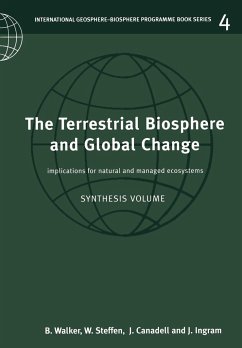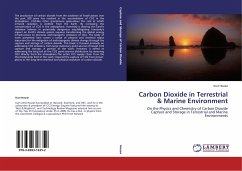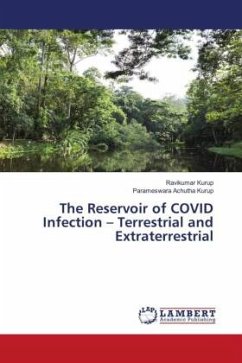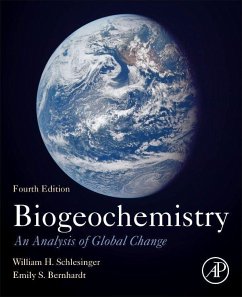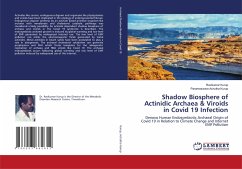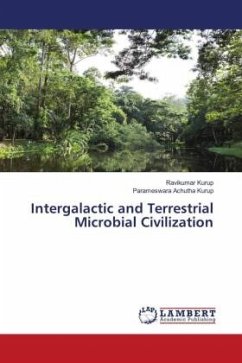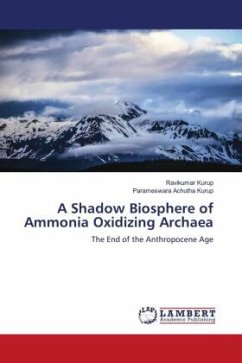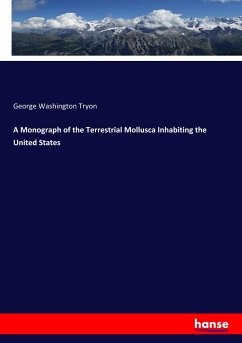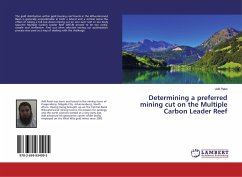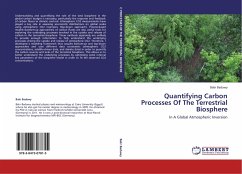
Quantifying Carbon Processes Of The Terrestrial Biosphere
In A Global Atmospheric Inversion
Versandkostenfrei!
Versandfertig in 6-10 Tagen
39,99 €
inkl. MwSt.

PAYBACK Punkte
20 °P sammeln!
Understanding and quantifying the role of the land biosphere in the global carbon budget is necessary, particularly the response and feedback of carbon fluxes to climatic controls. Atmospheric CO2 measurements have played a key role in assessing source/sink distributions on global scales using atmospheric CO2 inversions (top-down approach). Process-based models (bottom-up approaches) of carbon fluxes are also useful tools for exploring the underlying processes involved in the uptake and release of carbon in the terrestrial biosphere. These methods separately are unlikely to provide enough info...
Understanding and quantifying the role of the land biosphere in the global carbon budget is necessary, particularly the response and feedback of carbon fluxes to climatic controls. Atmospheric CO2 measurements have played a key role in assessing source/sink distributions on global scales using atmospheric CO2 inversions (top-down approach). Process-based models (bottom-up approaches) of carbon fluxes are also useful tools for exploring the underlying processes involved in the uptake and release of carbon in the terrestrial biosphere. These methods separately are unlikely to provide enough information to fully understand the underlying processes driving the uptake and release of atmospheric CO2. Therefore, I developed a modeling framework that couples bottom-up and top-down approaches and uses different data constraints (atmospheric CO2 concentrations, satellite-driven data, and climate data) in order to quantify the carbon sources and sinks of the terrestrial biosphere. This allows us to better understand the underlying processes by optimizing some internal key parameters of the biosphere model in order to fit the observed CO2 concentrations.



